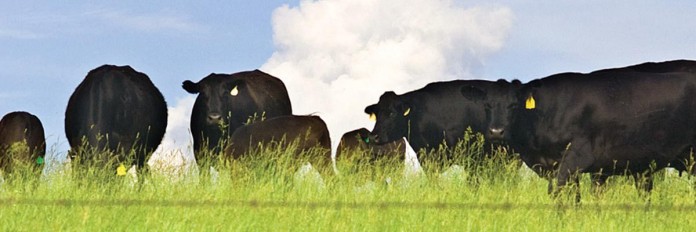WASHINGTON — The World Trade Organization ruled Monday, Dec. 7, that Canada and Mexico can slap more than $1 billion in tariffs on U.S. goods in retaliation for meat labeling rules it says discriminated against Mexican and Canadian livestock.
At issue were U.S. labels on packaged steaks and other cuts of meat that say where the animals were born, raised and slaughtered. The WTO has previously found that the so-called “country of origin” labeling, or COOL, law put Canadian and Mexican livestock at a disadvantage.
The COOL statute requires meat to be labeled with the country where the animal from which it was derived was born, raised and harvested. It also applies to fish, shellfish, fresh and frozen fruits and vegetables and certain nuts.
This announcement is the final step in a WTO dispute that has been ongoing for more than seven years. The WTO said that Canada could impose $780 million in retaliatory tariffs and Mexico could impose $228 million.
“We are disappointed with this decision and its potential impact on trade among vital North American partners,” said Tim Reif, general counsel for the Office of the U.S. Trade Representative.
Up to Congress
The WTO’s decision shifts responsibility to Congress, which is considering working a repeal of the labeling law into a massive year-end spending bill. Senate Agriculture Chairman Pat Roberts, R-Kansas, said Dec. 7 that he will look for “all legislative opportunities” to repeal the labeling law.
“We must prevent retaliation, and we must do it now before these sanctions take effect,” Roberts said.
The labeling law was included in the 2002 and 2008 farm bills at the behest of ranchers from those northern U.S. states who compete with the Canadian cattle industry. It has also been backed by consumer advocates who say it helps shoppers know where their food comes from.
On June 10, House of Representatives approved H.R. 2393, a bill to amend the Agriculture Marketing Act of 1946, by a recorded vote of 300-131. The legislation would repeal country-of-origin labeling requirements for beef, pork, and chicken, while leaving intact the requirements for all other covered commodities.
House Ag Committee Chairman Mike Conaway said the governments of Canada and Mexico have stated repeatedly that enactment of this legislation will mitigate the need for any retaliatory actions.
Dairy target
According to Jim Mulhern, president and CEO of the National Milk Producers Federation, U.S. dairy products are expected to be among the mix of items targeted for retaliation.
In anticipation of the announcement, the National Milk Producers Federation and the U.S. Dairy Export Council had previously urged House and Senate leaders to include a legislative resolution for the COOL dispute in the year-end spending bill under negotiation on Capitol Hill.
Mulhern said the two countries could activate their tariff penalties as early as this month, after one more perfunctory approval step. Canada and Mexico are two of the largest U.S. export markets. Together, they import more than $2 billion in U.S. dairy products annually.
Likewise, National Cattlemen’s Beef Association President Philip Ellis said unless Congress acts, U.S. beef exports will face “a 100 percent tariff in these countries, severely diminishing about $2 billion of beef exports annually.”
The loss of the Canadian and Mexican markets is expected to cost U.S. beef producers 10 cents per pound immediately, Ellis said.
In the original dispute, Canada and Mexico challenged the treatment accorded to imported Canadian cattle and hogs, and imported Mexican cattle, under the United States’ amended country-of-origin labeling rules for beef and pork, saying it gives Canadian and Mexican livestock less favorable treatment than that accorded to like U.S. livestock.
According to National Farmer Union President Roger Johnson, the WTO decision to allow Canada and Mexico to impose $1.01 billion in retaliatory tariffs against the U.S. is well above the $90 million figure provided to the panel by the U.S. Trade Representative (USTR) in early August.
Other goods affected
Canada has announced a comprehensive list of products they intend to retaliate against, including not only U.S. beef and pork, but grains, fruits and manufactured goods.
Under WTO retaliation procedures Canada and Mexico can also carousel the products they retaliate against, choosing to target certain products during parts of the year, according to the National Cattlemen’s Beef Association.










